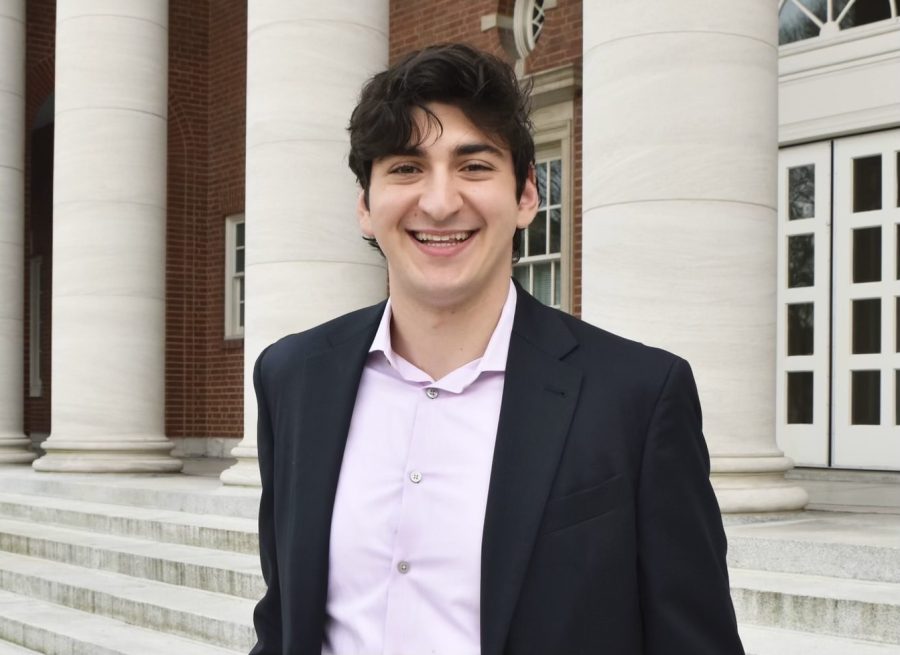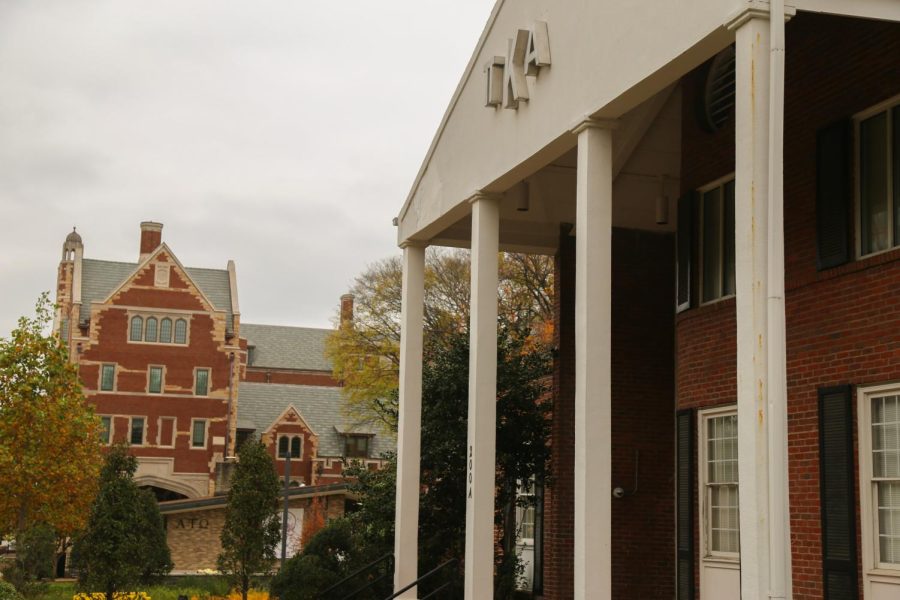When I read Jared Bauman’s “How Abolish Greek Life gets it wrong”, his point of view was familiar to me: he understands some of the harms of Interfraternity Council and Panhellenic (IFCPH) organizations but ultimately feels his chapter is substantially better than the rest and that taking it away would be unfair. I hope to encourage him to look outside of his bubble, to realize that abolishment aligns with his values and then to join this worthy cause.
Bauman acknowledges that “many chapters have immense problems with ‘racism, classism and exclusion’” and that sexual assault is “prevalent” in IFCPH, as shown by multiple narratives on the @abolishvandyifcandpanhellenic page. This being said, he says he “cannot support the movement to abolish Greek life in its current iteration with a clear conscience” for three reasons: first, because the Abolish Greek life movement perpetuates “division, animosity, and fear” and silences opposers; second, because the goals will deprive students of positive experiences at non “depraved” chapters; and third, because abolishing Greek life will prove ineffective at fostering substantial changes on campus.
While Bauman’s feelings are valid (he clearly had an exceptionally positive experience at his chapter), these benefits can, in fact, be achieved by other organizations in a reimagined Vanderbilt. Patchwork reforms don’t address the root issues of IFCPH organizations, and sustaining these organizations for their individual benefits should not take priority over the harm they inflict upon other groups.
As a previous member of an IFC chapter, I want to acknowledge my complicity in an organization that caused harm. I used to think that advocating for reform was the best way to make IFC better for its members and for the greater Vanderbilt community. I must credit the students not in IFCPH organizations and the brave Black women who left their sororities and spoke out and in order to create substantive change. Their experiences were instrumental in changing my mind.
Bauman says this movement is a force of “division, animosity and fear” that attempts to “silence” internal reformers. He calls out stories he’s heard of white students lecturing IFCPH POC on systemic racism and calling them “race traitors” when they do not drop. I agree. This is counterproductive and hurtful. I condemn those in support of abolishment that resort to name-calling and whitesplaining.
This being said, “fear” and “animosity” shown by students that have been harmed by IFCPH organizations should not push anyone away from the movement. Those concerned with rhetoric should look outside of their own point of view before critiquing and consider why they aren’t emotionally affected. They were not harmed by IFCPH organizations.
Bauman also references three posts to prove this point. The first responds to the possibility of reform and urges those who have benefitted from IFCPH organizations to listen to those who have been harmed. The second emphasizes how IFCPH organizations were founded upon the exclusion of Black students and perpetuates this exclusion through unconscious biases, and the third is a submission to @dearpwi that makes no reference to abolishing Greek life, nor any silencing remark. None of these show intent to divide or silence.
Even though Bauman clearly supports good faith discussion, he wrongly confuses the intent of the movement with its impact. This movement is made up of Vanderbilt students and alumni, from all walks of campus life calling for a more equitable college experience, so its intent is not the issue. If the impact is what he is concerned with, then I offer this: all movements will create a divide between supporters and opposers and this one is no different. This does not mean that all movements are good, only that divisive impacts should not motivate opposition.
This movement does not silence others, as Bauman claims. Challenging prospective reformers to examine other perspectives does not silence them. By this logic, sharing positive experiences would therefore be another form of silencing. Overall engaging with arguments surrounding reform creates dialogue, not silence.
Next, Bauman says his chapter isn’t “depraved,” as the movement claims, and that abolishment will abolish the organization that afforded him “the acceptance and sensitivity that [he] struggled to find anywhere else.” I understand his sentiment, but abolitionists never say that all IFCPH organizations are depraved. They write that Greek life “perpetuates racism, sexism, classism, heterosexism, ableism and the gender binary.”
IFCPH organizations can have real benefits, and they don’t make you evil. These organizations can provide members with “acceptance, diversity, inclusion and love” and still cause harm. Racially diverse chapters with ample scholarships and a lack of emphasis on drugs, alcohol and sex diminish some harm, but they still contribute to it in the following ways.
Every socially exclusive, gendered organization that requires dues suffers from these issues. All IFCPH organizations collect dues from the overwhelming majority of members upfront in a large lump sum; national dues make it so that they cannot use a pay-per-event framework like most other organizations on campus do. (A great example of this alternative structure is the MLC Semi-Formal.) This payment structure inherently creates a classist cutoff for potential new members and forces members to even pay for the events they can’t attend, which creates a barrier to students with jobs on campus.
All IFCPH organizations cut potential new members based on social prowess; this exclusion inherently perpetuates ableist, racist, classist and queerphobic unconscious biases, each to varying degrees. Even “values-based” recruitment attempts suffer from this issue.
All IFC organizations consist of only men, primarily (if not solely) mix with sororities and have alcohol at the majority of their events; they perpetuate the gender binary, alcohol use, rape culture and heterosexism through recruitment and social events regardless of how well-intentioned their members are.
Overall, it is clear that while Bauman’s chapter is not an “image of abject depravity,” they still perpetuate harm. This argument in itself should be enough—why should someone’s benefits take priority over harm to others?
This argument in itself should be enough—why should someone’s benefits take priority over harm to others?
On top of this, while Bauman claims that some may “struggle” to find “acceptance” and “sensitivity” elsewhere, his anecdotal evidence does not mean it does not exist. There are organizations specifically dedicated to those “philanthropic initiatives, community service, mental health support networks and meaningful activities” that he mentions. Even if we accept the far-fetched notion that he tried every interest-based organization available at the time, I urge all who doubt whether clubs can fulfill the void that abolishing IFCPH would create to imagine clubs at Vanderbilt unlike they have ever existed before.
Students would no longer be separated by IFCPH organizations during recruitment and new member education processes or consistently busy with events that they pay for upfront. Like students at other schools without Greek life, they would be able to fully invest themselves in multiple clubs that would have additional administrative and financial support and a physical gathering place to build community.
Arguments for the irreplaceable benefits of IFCPH organizations are myopic and anecdotally justified. Even moreso, it is offensive to suggest that Greek life is necessary for a rich social experience. If the experiences of other Vanderbilt students are somehow not enough, look into the schools on the aforementioned list that don’t have Greek life.
Lastly, I have to address the claims that this movement will be ineffective in creating change. Bauman cites a statistic showing the prevalence of sexual assault before and after administrative sanctions on IFCPHC organizations at Princeton and Harvard. While it appears compelling at first, this single study doesn’t show the full picture.
This study took place just over one year after the universities sanctioned (not abolished) IFCPH organizations. The residual groups and power structures still existed and “finals clubs” and “eating clubs” still contributed to this statistic as well.
Even if this reductionist statistic is to be believed, it still stands feebly in the face of a large body of evidence on the causal relationship between sexual violence and IFCPH organizations. Claiming that abolishment at Harvard and Princeton “accomplished none of its goals,” because unofficial Greek organizations still exist, may be partly true for these schools. If students still condone underground organizations, the culture will not change.
However, the movement to abolish IFCPH organizations at Vanderbilt strives for more than administrative sanctions. The movement is student-driven and refuses to tolerate the rise of toxic organizations. To quote the movement’s Instagram post, “if we do not fund elitist groups and create a culture in which we disapprove of them, their power will be completely dismantled,” and they will cease to exist. This will diminish more harm than any patchwork solution that reformers suggest within the existing system.
The truth of the matter is that there is no way to fix organizations founded upon exclusion. Attempts have been made to reform them but the only way to end the source of this harm is to dismantle them entirely and reinvest elsewhere to create a more equitable Vanderbilt community. I hope current “reformers” like Bauman will join this movement.














